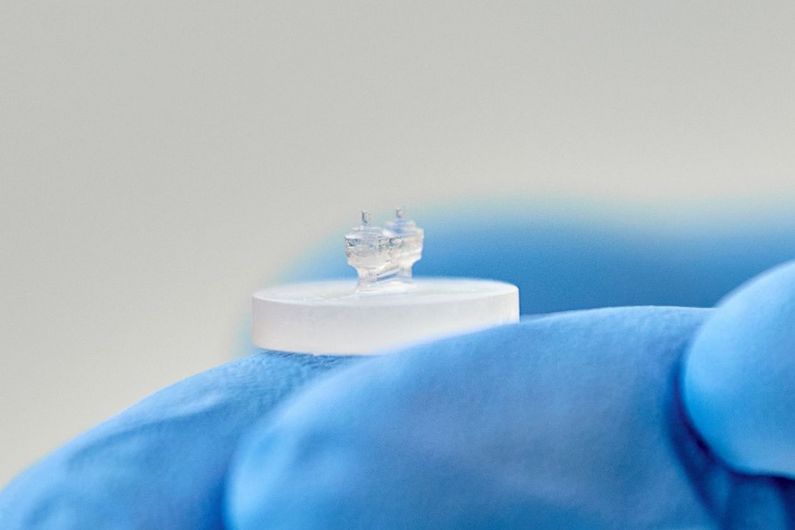Researchers at the University Montreal have developed a “heart-on-a-chip” device that promises to improve the understanding of cardiovascular disease and help in the development of new precision treatments.
The device, known as a ‘heart-on-a-chip’, was made with a special bio-ink using 3D bioprinting technology. It promises to promote a deeper understanding of the individual nature of heart disease and enable the development and accurate assessment of new treatments in an automated, high-throughput process.
The device and its bio-ink were developed by a team led by UdeM pharmacology professor Houman Savoji and PhD student Ali Mousavi and described in the journal Applied Materials Today. Since the heart is a vital organ whose activity cannot be directly analyzed “live” at the cellular level, the “heart on a chip” proves to be particularly useful. It is a ring-shaped tissue that consists of the patient’s own cells and replicates the complexity of the human heart as closely as possible.
“Our research has made it possible to combine 3D bioprinting technology to produce standard hearts-on-a-chip much more quickly and precisely,” said Savoji. “What’s more, our results show that printed devices perform better than those produced manually.”
“We’ve formulated a bioink that best reproduces the properties of the heart, such as elasticity and electrical conductivity, and has suitable properties required for 3D bioprinting,” said Mousavi, the study’s first author, who’s doing his PhD at the Institute of Biomedical Engineering.
The device opens up new perspectives for the identification of new drugs. “The next step will be to compare healthy and diseased heart cells to develop solid models for cardiac pathologies. This will also allow us to safely and accurately test the effect of new therapeutic molecules on cells,” says Mousavi.
“The next step will be to compare healthy and diseased heart cells to develop solid cardiac pathology models. That will also let us safely and accurately test the effect of new therapeutic molecules on cells.”
Subscribe to our Newsletter
3DPresso is a weekly newsletter that links to the most exciting global stories from the 3D printing and additive manufacturing industry.





















